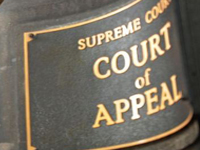
Class 2 buildings appeal decision
The Victorian Court of Appeal handed down its final verdict on the use of class 2 buildings use on Friday. Two of Australia’s most prominent strata lawyers outline their analyses below.
Absolute clarity on class 2 buildings
 |
| John Mahoney |
On 12 December the Court of Appeal in Victoria handed down its decision upholding what I heralded some months ago as one of the most important decisions ever for the management rights industry in Australia.
The Court of Appeal confirmed the Supreme Court’s decision that class 2 buildings (like most holiday and short term apartment buildings in Brisbane and the east coast of Australia) can be used for short term and holiday accommodation. The decision removes any lingering uncertainty generated by the former Queensland state government’s discussion paper on the matter.
The critical issue was whether the term “dwelling” in the class 2 definition in the Building Code of Australia allowed short term residential usage.
The Melbourne City Council and a group of unit owners in a residential apartment building at Docklands claimed that short term letting of apartments in the building (a class 2 building under the BCA) was unlawful and that such use was only permitted in class 3 buildings. The Victorian Building Appeals Board had ruled in their favour finding that short term accommodation usage contravened the BCA. The property manager successfully appealed to the Supreme Court which found that such short term usage was lawful.
The findings of the Court of Appeal included the following:
- Use of the word “dwelling” in the relevant definition did not limit the residential use to permanent or long term residence;
- The concept of dwelling encompasses short term and holiday accommodation; and
- There is no basis for limiting the word dwelling to just long term residential usage.
So absent an appeal to the High Court, which seems unlikely in the extreme, the issue is now resolved once and for all. That will be further relief to the many management rights operators of short term and holiday apartment complexes throughout
Australia.
There are some parts of the judgement that operators of certain hotel-like complexes will read with interest. Where all apartments in the building, or an identifiable part of it, are short term let and provided with the full gamut or a substantial cross-section of the services customarily expected of a hotel, it is possible that a class 3 classification may be required. It will always be a question of degree.
Good news for serviced apartments and the tourism industry
 |
| John Punch |
The serviced apartment industry, the owners of management rights, lot owners who let out serviced apartments and indeed the tourism industry of Queensland particularly can all be very relieved to know that the Supreme Court of Victoria Court of Appeal has resoundingly held that serviced apartments are not required to be classified as hotel buildings in order to be let out on a short term basis.
It has been an extraordinary road to reach this court determination. The Melbourne City Council officers in charge of the classification of constructed buildings had stepped in to declare that the short term letting of apartments in Docklands could only occur if the apartments were reclassified as hotel accommodation (from Class 2 multi-unit buildings to Class 3 hotel accommodation). This led to a series of cases and appeals.
Previously the Supreme Court decision had been against the Melbourne City Council findings and the appeal by the Melbourne City Council against that decision has now been dismissed. Consequently, the length of term of stay of a person in an apartment is not relevant to the classification of the building under the various state laws.
In Queensland, the minister for planning has confirmed that there are no plans to change the wording of the law covering the classification of buildings. Similarly the Australian Building Codes Board, covering all states in consultation, had previously announced that no changes to the wording of the National Construction Code were occurring.

AccomNews is not affiliated with any government agency, body or political party. We are an independently owned, family-operated magazine.






